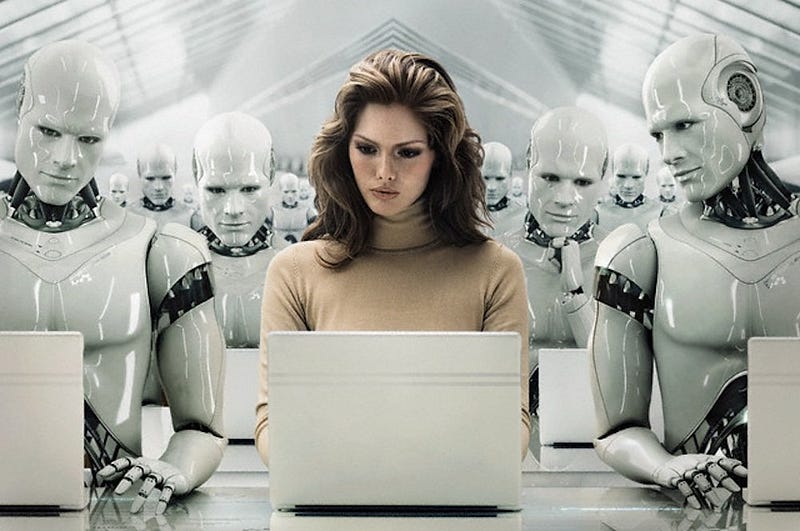The Gig is Up: Why Tech Must Prioritize the Safety Net

The moderator called time before I had a chance to address that aspect of her multi-pronged question but as we walked offstage, he asked me how I would have responded. I replied, “We have large and growing indigent and homeless populations in the U.S., just imagine what it will be like if automation causes large numbers of people to lose their jobs.”
That was before Republicans in Washington began their efforts to dismantle the U.S. healthcare system and slash social safety net programs in the name of consumer choice and cost efficiency. Offering a healthcare reform bill that is most notable for its $600 billion in tax breaks for the wealthy, cuts to Medicaid, and probability of making healthcare less affordable and accessible, House Republicans have shown their willingness to tear down the very programs workers will need to weather possible labor market disruptions due to automation.
Like the woman from France whose question seemed to infer that by denying people the option of a public safety net they will be forced to find alternative ways to survive, Republicans have long subscribed to this “pull yourself up by your own bootstrap” mentality, particularly when it comes to low-income, working and middle class people.
Yet, what’s missing from this ideologically-driven perspective is any modicum of concern or compassion for workers in low-wage and part-time jobs who need accessible and affordable services to help meet their basic needs; those vulnerable people who will not, for whatever reason, be able to make a way; or even those who are striving for new opportunities but need temporary assistance while they put their plans in motion.
If there is any chance for humanity in a future where automation is ubiquitous, this utter disregard for the possibility of human suffering must end.
Although estimates vary, one widely cited study suggests that as much as 47 percent of workers could be displaced from their jobs as a result of automation. Indeed, my organization’s recently released study, Stick Shift: Autonomous Vehicles, Driving Jobs, and the Future of Work, found that more than 4 million U.S. jobs could be at risk if the nation experienced a rapid transition to driverless cars, buses, and trucks.
The study finds that the vast majority of drivers are the least likely to be resilient in a scenario where they lose their jobs to automation and have no safety net upon which to fall back on. Ninety-three percent of professional drivers in the U.S. have less than a college degree. And while their median income from driving jobs is enough to keep them above the poverty level — their income levels suggests that they are unlikely to have enough wealth to sustain themselves or their families should they lose their income for an extended period of time.
The socioeconomic profile of drivers and workers in industries that have already seen widespread automation — cashiers at supermarkets and convenience stores, bank tellers, and fast food clerks — makes it clear that the U.S. will need a stronger social safety net, not a weaker one, as automation takes root across the nation.
Yet, policymakers in Washington act as if their heads are in the sand: busy relitigating 20th century policy battles without regard for or understanding of 21st century challenges.
I’m not being hyperbolic. Most recently, the President has proposed a budget that eliminates or drastically reduces the very worker retraining and education programs that could — with some retooling — help meet these challenges. When their collective agenda is viewed in its entirety, the President and Congressional Republicans seem intent on driving up the federal deficit and debt with more spending on the tools of warfare, the building of a wall, and even more tax giveaways for the wealthy.
It’s not hard to foresee how their strategy, if successfully implemented, could be used as an eventual excuse to say that the nation can no longer afford vital worker programs like Social Security and Medicare. They will argue that in order to be saved, these programs must be turned over to the private sector who will, in pursuit of maximum profits, proceed to make them less affordable and accessible to ordinary workers.
This likely scenario would destroy the social insurance infrastructure needed to create a universal basic income, or, as I have argued elsewhere, a progressive basic income that workers would need to survive and thrive in an automation nation.
If left unchallenged, Washington’s current direction will be disastrous not only for American workers but also for the tech sector. For the benefits of autonomous technology will only be realized if there is a strong social insurance and safety net infrastructure in place to help workers in need while positioning them for the jobs of the future.
Dr. Maya Rockeymoore (@MayaRockeymoore) is Founder, President, and CEO of Global Policy Solutions LLC, a social change strategy firm and a certified B Corporation, and the Center for Global Policy Solutions (@policysolutions), a 501c3 think tank and action organization dedicated to driving society toward inclusion.
